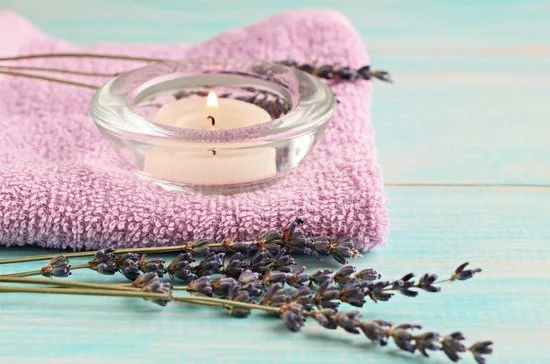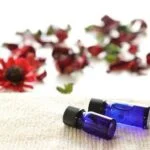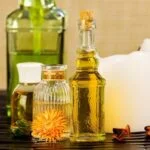Aromatherapy has become increasingly popular in recent years, as more and more people are recognizing the numerous benefits it offers. This introductory section aims to provide an overview of the topic and its relevance in today’s society.
From boosting mood and mental well-being to enhancing sleep quality and relaxation, aromatherapy has the power to positively impact various aspects of our lives. By harnessing the natural healing properties of essential oils, this holistic practice can offer a range of physical and emotional benefits.
As the stressors of daily life continue to mount, many individuals are seeking natural remedies to promote relaxation and well-being. Aromatherapy provides a welcome solution, offering a gentle yet effective approach for managing stress, anxiety, and even depression. By utilizing specific scents that have been scientifically proven to boost mood and improve emotions, aromatherapy allows individuals to find solace in their surroundings.
One of the key reasons why aromatherapy has gained such popularity is due to its ability to alleviate physical ailments. Certain essential oils possess anti-inflammatory properties that can aid in managing pain and reducing inflammation. Additionally, some oils have been shown to aid digestion and alleviate allergies, providing relief for those who suffer from these common conditions.
Understanding the Power of Essential Oils
Essential oils are the foundation of aromatherapy and play a crucial role in providing numerous health benefits. These oils are derived from different parts of plants, such as flowers, leaves, stems, and roots, through various extraction methods including steam distillation, cold-press extraction, and solvent extraction. Each essential oil contains unique chemical compounds that contribute to its therapeutic properties.
One commonly used essential oil in aromatherapy is lavender oil. Lavender oil is known for its calming and relaxing effects on the mind and body. It has been shown to reduce anxiety and improve sleep quality. Another popular essential oil is eucalyptus oil, which has a cooling sensation and can provide relief for respiratory conditions such as coughs, colds, and sinus congestion.
The power of essential oils lies in their ability to interact with our senses and affect our emotions and physiological responses. When inhaled or applied topically, the aroma molecules of these oils stimulate the olfactory system in our brain. The olfactory system is closely connected to the limbic system, which controls emotions, memories, and behavior. This connection allows essential oils to have a direct impact on our mood and mental well-being.
| Essential Oil | Therapeutic Properties |
|---|---|
| Lavender | Calming, relaxing |
| Eucalyptus | Cooling, decongestant |
| Peppermint | Energizing, digestive aid |
| Tea Tree | Antibacterial, antifungal |
Understanding the power of essential oils is essential in harnessing the full potential of aromatherapy. By using different oils with their specific therapeutic properties, individuals can experience a wide range of benefits for their physical, mental, and emotional well-being. Whether it’s addressing stress, improving sleep, or managing physical ailments, incorporating essential oils into aromatherapy practices can be a natural and effective way to enhance overall health.
The Science Behind Aromatherapy
Aromatherapy is more than just a pleasant scent. It is backed by scientific evidence that supports its healing properties and benefits for our overall well-being. Understanding the science behind aromatherapy can help us appreciate its effectiveness and make informed choices when incorporating it into our daily lives.
Aromatherapy works by harnessing the power of scent to affect our brain and emotions. When we inhale essential oils, the molecules in the oil interact with receptors in our nasal cavity, which then send signals to different areas of the brain, including the limbic system. The limbic system plays a crucial role in regulating emotions, memory, and stress response.
Research has shown that certain scents can have a direct impact on our mood and mental state. For example, lavender essential oil has been found to promote relaxation and reduce anxiety. Its calming effect is attributed to its ability to increase the production of serotonin, a neurotransmitter that helps regulate mood. On the other hand, citrus oils like lemon and orange have uplifting properties and can boost energy levels.
In addition to affecting our emotions, aromatherapy also has physical benefits. Many essential oils possess anti-inflammatory and analgesic properties, making them effective for managing pain and inflammation. Eucalyptus oil, for example, contains compounds that help reduce swelling and promote healing. Other oils like peppermint can aid digestion and relieve common digestive issues such as bloating or indigestion.
To harness the full potential of aromatherapy, it is important to understand how to use essential oils safely and effectively. Dilution ratios are crucial to avoid skin irritation or adverse reactions. It’s also important to note any contraindications or precautions associated with specific oils before using them.
Overall, the science behind aromatherapy provides us with a deeper understanding of this natural healing modality’s potential benefits for both our physical and mental well-being. By utilizing essential oils mindfully and safely, we can tap into the power of aromatherapy to enhance our daily lives and promote a sense of balance and harmony.
Boosting Mood and Mental Well-being
Aromatherapy has long been recognized for its positive effects on mood and mental well-being. The use of certain scents can have a profound impact on our emotions, helping to alleviate stress, anxiety, and depression. With the right blend of essential oils, aromatherapy can provide a natural and holistic approach to improving mental health.
Certain scents have been found to have specific properties that can uplift mood and promote relaxation. For example, lavender oil is known for its calming properties and is often used to reduce feelings of anxiety and promote better sleep.
Citrus oils, such as lemon or orange, are energizing scents that can help improve focus and boost mood. On the other hand, floral scents like rose or jasmine are known for their uplifting qualities and their ability to enhance feelings of happiness.
The power of scent goes beyond just smelling pleasant. When we inhale an aroma, it travels directly to the olfactory system in our brain, which is responsible for processing smell. This system also intersects with the limbic system, which regulates mood and emotions. This connection explains why certain smells can trigger memories or evoke powerful emotional responses.
To incorporate aromatherapy into your daily routine for mood enhancement, there are various methods you can try. Diffusing essential oils in a room using a diffuser is one popular option. Alternatively, you can create a personal inhaler by adding a few drops of essential oil to a cotton ball or tissue and inhaling deeply whenever needed. Another method is through massage therapy with essential oils diluted in carrier oils like coconut or almond oil.
Enhancing Sleep Quality and Relaxation
A restful night’s sleep is essential for overall health and well-being. However, many people struggle with insomnia or have difficulty falling asleep. Aromatherapy can be a powerful tool in promoting better sleep quality and relaxation. By harnessing the calming effects of certain essential oils, aromatherapy can help create a soothing environment conducive to restful sleep.
Some essential oils are particularly effective in promoting sleep. Lavender oil, for example, has been shown to reduce anxiety and improve sleep quality. In a study published in the Journal of Alternative and Complementary Medicine, participants who were exposed to lavender oil reported significantly improved sleep quality compared to those who received a placebo. Another study published in the journal Natural Product Communications found that inhaling lavender oil before bedtime improved sleep efficiency and reduced daytime drowsiness.
Eucalyptus oil is another popular choice for enhancing relaxation and promoting better sleep. The scent of eucalyptus has been found to have sedative properties, helping to calm the mind and prepare it for rest. A study published in the Journal of Clinical Sleep Medicine found that inhalation of eucalyptus oil increased parasympathetic activity (which promotes relaxation) and decreased sympathetic activity (which is associated with stress response) during sleep.
Incorporating aromatherapy into your nighttime routine can be as simple as using a diffuser or applying diluted essential oils topically before bed. You can also create a relaxing atmosphere by adding a few drops of your chosen essential oils to your pillowcase or bedding.
By using aromatherapy to enhance sleep quality and promote relaxation, you can experience the restorative benefits of a good night’s sleep. Whether you choose lavender oil, eucalyptus oil, or other calming scents, incorporating aromatherapy into your bedtime routine may help you achieve better physical and mental well-being.
| Essential Oil | Sleep Benefits |
|---|---|
| Lavender Oil | – Reduces anxiety and improves sleep quality
|
| Eucalyptus Oil | – Promotes relaxation and prepares the mind for rest
|
Alleviating Physical Ailments
Investigating the potential of aromatherapy for managing pain and inflammation
Aromatherapy has long been used as a complementary therapy for alleviating physical ailments such as pain and inflammation. Certain essential oils possess properties that can be effective in reducing discomfort and promoting healing.
One essential oil that has gained recognition for its pain-relieving properties is lavender oil. Lavender possesses anti-inflammatory, analgesic, and sedative properties, making it a valuable asset in managing different types of pain. Research has shown that inhalation or topical application of lavender oil can help reduce the intensity and duration of headaches, menstrual cramps, muscle soreness, and joint pain.
Eucalyptus oil is another essential oil known for its analgesic and anti-inflammatory effects. It has been used to relieve respiratory conditions such as sinusitis, bronchitis, and respiratory infections.
Furthermore, aromatherapy can also aid digestion and alleviate allergies. Peppermint oil has been found to be effective in soothing digestive issues such as indigestion, bloating, nausea, and irritable bowel syndrome (IBS). Its antispasmodic properties help relax the muscles of the gastrointestinal tract and minimize symptoms.
In addition to digestive benefits, essential oils like tea tree oil have antimicrobial properties that can help alleviate symptoms associated with allergies caused by mold or airborne irritants. It can be diffused or applied topically to ease congestion and promote clearer breathing.
Discussion on how certain oils can aid digestion and alleviate allergies
Aromatherapy offers promising benefits for improving digestion and relieving allergic symptoms. Ginger essential oil is known for its ability to stimulate digestion by increasing the secretion of gastric juices and enzymes. It may be helpful in managing conditions such as indigestion, flatulence, stomachaches, and acid reflux.
Additionally, chamomile essential oil is renowned for its calming effects on the digestive system. It can help soothe and relax abdominal muscles, reduce inflammation, and relieve symptoms of gastrointestinal distress such as cramping and spasms. Chamomile is especially beneficial for individuals with inflammatory bowel disease (IBD), irritable bowel syndrome (IBS), or other digestive disorders.
Moreover, some essential oils possess antihistamine properties that can alleviate allergy symptoms. For instance, lemon oil has been found to have anti-allergenic effects that reduce histamine release in the body, thereby minimizing allergic reactions. This oil can be used to ease symptoms such as sneezing, runny nose, itchy eyes, or skin rashes caused by allergies.
When using aromatherapy for physical ailments like digestive issues or allergies, it is important to consult a qualified aromatherapist or healthcare professional for proper guidance and dosage recommendations. Each individual may respond differently to different essential oils, so personalized advice can help ensure safe and effective use.
Aromatherapy for Skin and Hair Care
In addition to its mood-boosting and therapeutic benefits, aromatherapy also offers a multitude of advantages for skin and hair care. Essential oils are frequently used in skincare routines due to their natural healing properties and rejuvenating effects. These potent oils have the ability to nourish, soothe, and improve the overall health of the skin. Similarly, when applied to the scalp and hair, essential oils can promote healthy hair growth and address common issues such as dryness or dandruff.
One of the primary benefits of incorporating aromatherapy into skincare is its ability to provide hydration and moisturization for all skin types. Essential oils like lavender, rosehip, chamomile, and geranium are popular choices due to their calming properties that help soothe sensitive or irritated skin. They can reduce redness, inflammation, and even minimize acne breakouts. Alternatively, oils such as tea tree oil or eucalyptus are known for their antibacterial properties that can combat bacterial infections on the skin.
For those struggling with common scalp issues such as dandruff or hair loss, aromatherapy can be a natural solution worth exploring. Essential oils like peppermint or rosemary have stimulating effects on the scalp which encourage blood circulation in hair follicles, aiding in stronger hair growth. Tea tree oil is another effective remedy that treats various scalp conditions by reducing inflammation and controlling excess oil production.
While essential oils offer numerous benefits for skin and hair care, it is important to note that proper dilution is crucial for safe usage. Essential oils should always be diluted with carrier oils such as jojoba or coconut oil before applying directly onto the skin or scalp. Patch testing is also recommended before topical use to ensure there are no adverse reactions.
By harnessing the power of aromatherapy in skincare routines and hair care practices, individuals can experience not only physical improvements but also enhanced well-being. Aromatherapy provides a natural and holistic approach to taking care of the body, benefiting both the outside appearance and overall health. Whether it’s improving skin conditions or promoting healthy hair growth, essential oils offer a fragrant and effective solution for those seeking a more natural approach to self-care.
Incorporating Aromatherapy into Everyday Life
Aromatherapy is a versatile and accessible practice that can easily be incorporated into your everyday life. With its numerous benefits for mood, relaxation, physical ailments, and skincare, aromatherapy can be a valuable tool for enhancing overall well-being. Here are some practical tips on how to integrate aromatherapy into your daily routine.
Choosing the Right Essential Oils
The first step in incorporating aromatherapy into your daily life is selecting the right essential oils for your needs. Consider the specific benefits you want to achieve, whether it’s boosting energy and focus or promoting relaxation and sleep. Research different essential oils and their therapeutic properties to find the ones that align with your goals. For example, if you’re looking for stress relief, lavender or chamomile essential oil would be great choices.
Diffusion Methods
One of the most popular ways to enjoy the benefits of aromatherapy is through diffusion. There are various methods of diffusion, including using diffuser machines, oil burners, or simply adding a few drops of essential oil to a tissue or cotton ball. Experiment with different methods to find what works best for you. Diffusing essential oils not only fills the air with soothing scents but also allows you to experience their therapeutic effects throughout the day.
Topical Application
Another way to incorporate aromatherapy into everyday life is through topical application of essential oils. Dilute your chosen oil with a carrier oil such as jojoba or coconut oil before applying it directly to your skin. This can be done through massage or by adding a few drops to bathwater or body lotion. Keep in mind that some essential oils may cause skin irritation if used undiluted or if you have sensitive skin, so always perform a patch test first.
Inhalation Techniques
Inhalation techniques provide another convenient way to enjoy the benefits of aromatherapy throughout the day. You can add a few drops of essential oil to a tissue or handkerchief and inhale deeply whenever you need a mood boost or stress relief. Alternatively, you can create your own inhalers by saturating cotton wicks with your chosen essential oils and placing them in small containers that can easily be carried in your pocket or bag.
By integrating aromatherapy into your daily routine, you can experience its positive impact on your overall well-being. Whether you diffuse essential oils, apply them topically, or inhale them, incorporating these practices into your everyday life allows for consistent exposure and maximum benefits. Experiment with different methods and oils to find what works best for you and enjoy the natural healing properties that aromatherapy has to offer.
Aromatherapy Safety and Precautions
While aromatherapy offers numerous benefits for physical, mental, and emotional well-being, it is important to practice caution and adhere to safety guidelines when using essential oils. These potent oils can have powerful effects on the body and should be used responsibly. Understanding the proper dilution and usage of essential oils is crucial in order to prevent adverse reactions and ensure safe usage.
One important aspect of aromatherapy safety is proper dilution. Essential oils are highly concentrated substances that should generally not be applied directly onto the skin without being diluted first. Carrier oils, such as almond oil or jojoba oil, are commonly used to dilute essential oils for topical application.
The specific dilution ratio will vary depending on the intended use and the individual’s sensitivity. It is recommended to start with a low concentration and gradually increase if necessary. Additionally, it is crucial to check for any potential allergies or sensitivities before using a new essential oil.
In addition to proper dilution, another consideration in aromatherapy safety is understanding potential risks and contraindications associated with certain essential oils. Some essential oils may be phototoxic, meaning they can cause skin sensitivity or reactions when exposed to sunlight or UV rays.
Examples of phototoxic essential oils include citrus oils such as bergamot or grapefruit. Certain essential oils may also interfere with certain medications or medical conditions, so it is important to consult with a healthcare professional if you have any concerns.
By following these safety guidelines, individuals can enjoy the many benefits of aromatherapy while minimizing any potential risks or adverse reactions. Aromatherapy has been used for centuries as a natural healing modality, but it is important to approach this practice with knowledge and respect for these powerful plant essences.
Conclusion
In conclusion, aromatherapy is a powerful and natural healing modality with numerous benefits for our physical, mental, and emotional well-being. Throughout this article, we have explored the various ways in which aromatherapy can enhance our lives, from boosting mood and mental well-being to improving sleep quality and relaxation. We have also learned about its potential to alleviate physical ailments and enhance skin and hair care routines.
One of the key takeaways from our exploration of aromatherapy is the science behind it. Aromatherapy works by stimulating specific receptors in our brain through scent, triggering positive emotional responses and promoting balance within our body. This scientific basis gives credibility to the efficacy of aromatherapy and underscores its potential as a complementary therapy for managing stress, anxiety, depression, pain, inflammation, digestion issues, allergies, and more.
As we conclude this article, it is important to highlight that incorporating aromatherapy into our everyday lives is easier than ever before. Whether through diffusing essential oils in a room or applying them topically using carrier oils or as a part of skincare routines, there are countless ways to harness the power of aromatherapy at home or on the go.
Additionally, it is essential to practice safety precautions such as proper dilution and usage of essential oils to avoid any adverse reactions.
In light of the overall benefits and positive impact that aromatherapy can have on our health and well-being, I encourage you to explore this natural healing modality yourself. By embracing aromatherapy as a part of your self-care routine or seeking guidance from professionals in the field, you can unlock the transformative power of scents for enhanced well-being.
Give yourself permission to tap into the world of essential oils – you may just find yourself opening up new pathways towards balance, relaxation, and vitality.
Frequently Asked Questions
What are the benefits of aroma scents?
Aroma scents offer a wide range of benefits to our well-being. Firstly, they have the ability to enhance our mood and uplift our spirits. Certain scents, such as lavender or lemon, are known for their calming properties that can alleviate stress and anxiety.
Additionally, aroma scents can improve focus and concentration, making them ideal for studying or working in a focused environment. Some aromas also possess energizing effects, providing a much-needed boost during times of fatigue or drowsiness. Overall, aroma scents contribute to creating a pleasant and harmonious atmosphere that positively impacts our emotional state.
How does aromatherapy calm you?
Aromatherapy has the remarkable ability to calm and relax us through its effect on the limbic system in our brain—the area responsible for emotions, memories, and physiological responses. When we inhale certain aroma molecules from essential oils, they stimulate the limbic system and trigger the release of neurotransmitters like serotonin or endorphins that induce feelings of relaxation and well-being.
By soothing the mind and reducing stress levels, aromatherapy promotes a sense of calmness that can be particularly beneficial after a long and tiring day.
How does aromatherapy help emotionally?
Aromatherapy has long been recognized for its positive impact on emotional well-being. It can significantly help with managing emotions by influencing our mood states and promoting emotional balance. For example, essential oils like bergamot or chamomile have been found to alleviate symptoms of depression by uplifting mood and reducing feelings of sadness or hopelessness.
Moreover, certain scents like rose or ylang-ylang possess aphrodisiac properties that can enhance sensuality and instill feelings of love and intimacy. By harnessing the power of scent, aromatherapy provides an avenue for emotional support and healing in various ways tailored to individual needs.

Are you looking for a natural way to improve your health and wellbeing?
If so, aromatherapy may be the answer for you.





